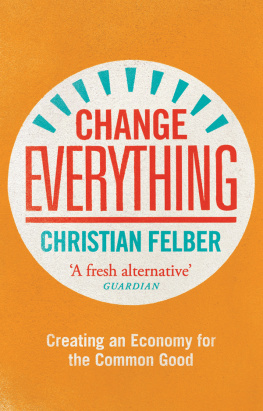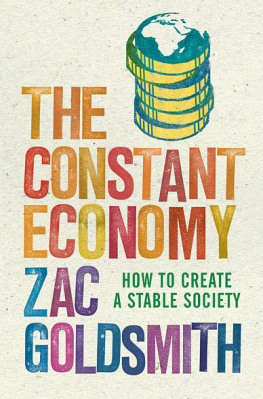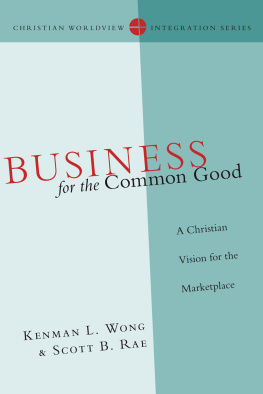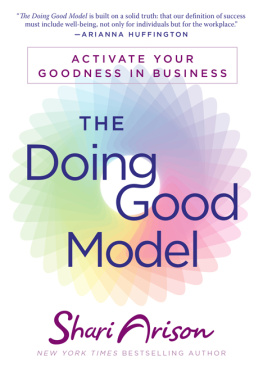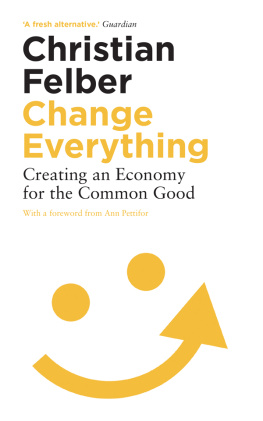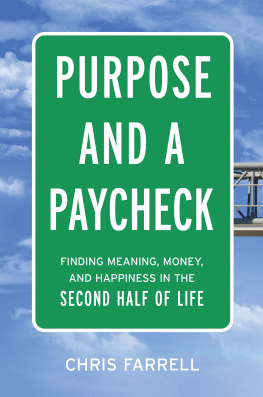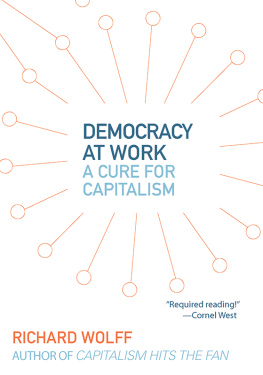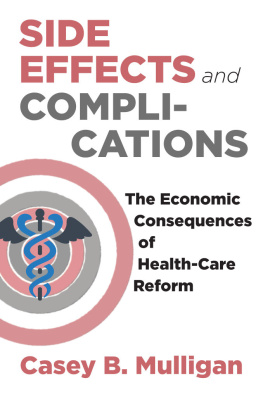
More Praise for Christian Felber
The Economy for the Common Good has demonstrated an ability to draw together a partnership of companies, consumers and communities... by offering a fresh alternative.
Bruce Watson, Guardian
We need an entirely new economic system if we are to avert collapse, and Christian Felber points the way. This path-breaking, optimistic book shows that it is possible to have an economy that serves us rather than enslaving us.
Richard Heinberg, Author of The End of Growth
Offers a clear analysis that combines pragmatic designs for some of the potential institutions of the next system with a strategy for building a movement that can bring these institutions into being. An important contribution to an essential global conversation.
Gar Alperovitz, Author of America Beyond Capitalism
Through the example of the Economy for the Common Good, everyone can see that doing business on the basis of a transparent, holistic, value and stakeholder oriented approach is possible. These ethical goals are indispensable for a humane future on this planet.
Lisa Muhr, Co-founder of the Goddess of Fortune Fashion Collective
Christian Felber is an Austrian alternative economist and university lecturer. He is an internationally renowned speaker, author of several award-winning bestsellers and a regular commentator on ethics, business and economics in various media. He co-founded the NGO Attac Austria and initiated the Economy for the Common Good as well as the planned Bank for the Common Good, which will be Austrias first ethical finance institute.
CHANGE
EVERYTHING
Creating an Economy for the Common Good
CHRISTIAN FELBER
Translated by Susan Nurmi
With a Foreword by Eric Maskin

Zed Books
LONDON
Change Everything: Creating an Economy for the Common Good
was first published in English in 2015 by Zed Books Ltd,
Unit 2.8 The Foundry, 17 Oval Way, London SE11 5RR, UK
Originally published in German in 2012 under the title
Die Gemeinwohl-konomie. Aktualisierte und erweiterte Neuausgabe
by Paul Zsolnay Verlag, Wien, Austria
www.zedbooks.co.uk
Copyright Deuticke im Paul Zsolnay Verlag, Wien 2012
The right of Christian Felber to be identified as the author
of this work has been asserted by him in accordance with
the Copyright, Designs and Patents Act, 1988
Typeset in Adobe Garamond Pro by seagulls.net
Index: John Barker
Cover designed by www.alice-marwick.co.uk
All rights reserved. No part of this publication may be reproduced,
stored in a retrieval system or transmitted in any form or by any
means, electronic, mechanical, photocopying or otherwise,
without the prior permission of Zed Books Ltd.
A catalogue record for this book is available from the British Library
ISBN 978-1-78360-473-9 hb
ISBN 978-1-78360-472-2 pb
ISBN 978-1-78360-474-6 pdf
ISBN 978-1-78360-475-3 epub
ISBN 978-1-78360-476-0 mobi
For the Common Good!
CONTENTS
I wish to express my thanks to the countless individuals who have committed themselves to the further development, dissemination and implementation of the model for an Economy for the Common Good and created a global energy field which is continuously gaining in momentum. These are private persons, entrepreneurs, organizers of events, academics, journalists, public speakers and supporters of various kinds. I specifically wish to thank:
Joachim Sikora, who coined the German term for Economy for the Common Good, Gemeinwohl-konomie , years ago, using it in reference to a reform-oriented economic model (www.joachimsikora.de); Stefano Zamagni and Luigino Bruni, the Italian authors of LEconomia del bene comune , and Herman Daly and John B. Cobb Jr., the American authors of For the Common Good . This convergence of similar approaches and concepts shows that the time is more than ripe for an Economy for the Common Good!
the numerous people who read the manuscript and contributed their ideas, among them Christian Apl, Jean-Philippe Baum, Harro Colshorn, Christian Fischer, Andreas Giselbrecht, Ludmilla Gro, Gnter Grzega, Sophie Gudenus, Astrid Hafner, Gus Hagelberg, Gisela Heindl, Christian Hi, Lutz Knakrgge, Jrg Knall, Franziska Kohler, Katharina Kronsteiner, Erwin Leitner, Christian Loy, Marita Matschke, Lisa Muhr, Sonia Ninik, Isabell Popescu, Alfred Racek, Emanuel Raviola, Andrea Reitinger, Christian Rther, Barbara Stefan, Eva Stilz, Subhash, Rahel Sophia S, Rita Trattnig, Jrg-Arolf Wittig, Wilhelm Zwirner
the very fine and professional team at Deuticke-Verlag which worked together with Bettina Wrgtter, Susanne Rssler, Annette Lechner, Brigitte Kaserer, Peter Guttmann and Martina Schmidt. And in the same way Ken Barlow and the whole team at Zed Books who as a workers collective already live many of the values proposed in this book.
the translator Susan Nurmi, who has done an excellent job and conveyed the meaning of every single word.
Gus Hagelberg, who is coordinating the dissemination of the Economy for the Common Good in the Anglo-Saxon world and has contributed decisively to the success of this book.
Diego Isabel La Moneda from the Spanish movement who introduced the ECG in Buckingham Palace to representatives from 41 British associations.
Eric Maskin who has contributed an equally precise and humane foreword.
Cornelius Pietzner, who is helping me as a personal coach and also with funding of the translation costs.
all those people who have reflected on solidarity-oriented, democratic and sustainable ways of doing business, contributed to the discussion concerning them and/or practise them in their daily lives.
Gaia and Pachamama, custodians of the Common Good.
Christian Felber thinks big. Not content with marginal change, he proposes a thorough overhaul of our capitalist system. In his world, companies still earn profits. But they are driven not by revenues and costs, but by their Common Good balance sheet, which evaluates them on how cooperative they are with other companies, whether their products and services satisfy human needs, and how humane their working conditions are. A company is awarded Common Good points accordingly, and its score is published, so that customers know whom they are dealing with. A good score also entitles the company to favourable government treatment: lower taxes, better borrowing terms and more public contracts.
Could this world actually come about? I honestly dont know. But I have encountered such a society on a smaller scale. Thirteen years ago, I was introduced to the Camphill movement, which builds communities where disabled people live together with their caregivers (my son lived at a Camphill school for six years). Like Christians utopia, these communities place the highest value on cooperation, dignity and service. If they can do it, perhaps Christians vision is not so far-fetched.
Eric Maskin
TAPAS: There are plenty of alternatives
On 6 October 2010, a process of change began in Vienna: the Economy for the Common Good took its first step towards turning an idea into a movement. It all began with a dozen Austrian enterprises; four years later, the list of supporters included some 1,700 enterprises and 200 organizations. Schools and universities from different parts of Europe and across the entire Latin American continent are now participating. Local chapters (also known as energy fields) are being founded in more and more countries, forming the backbone of the movement. Associations are coordinating developmental tasks, and expert teams are giving support to economic, political and cultural pioneers. The Economy for the Common Good was instigated by the activist organization Attac Austria, which I co-founded in 2000 and remained active in until 2014. In addition to teaching duties at the Vienna University of Economics and Business, book-writing and international lecture tours, I have since devoted my political energy and creativity to building up an international Economy for the Common Good movement and establishing the Bank for the Common Good project in Austria.
Next page
